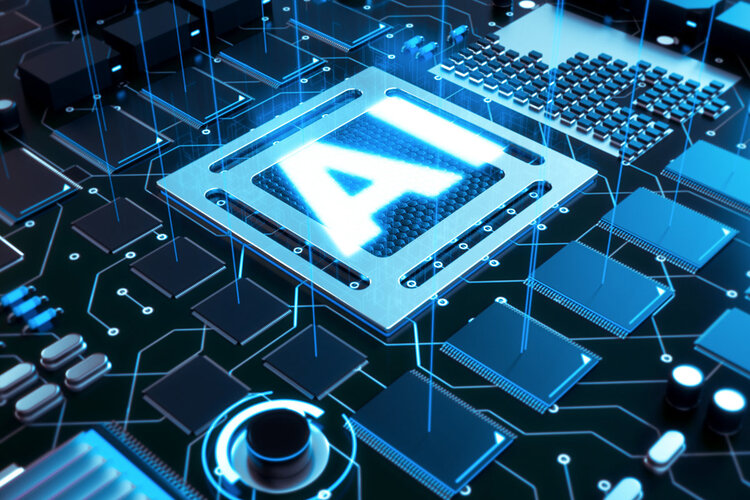Canada has been a good performer globally when it comes to industrial automation. It has openly accepted the trend of using machinery to automate different commercial processes and is above the global average in the use of industrial robots. The major reason for this acceptance is the introduction of artificial intelligence that provides amazing support to perform every task with utmost precision.
What is Artificial Intelligence?
Artificial intelligence is defined as the ability of computers and robots to perform human-like tasks without much intervention of human beings. It is a section of computer programming that creates smart technology, which mimics the performance of human intelligence and helps in performing different tasks with ease.
Artificial intelligence is a comprehensive science and based on the type of manufacturing process you run, there are four different areas in artificial intelligence that you can incorporate in your processes:
Limited Memory
Certain tasks that are performed by AI machines are not regular tasks but something that can happen just occasionally. To handle such tasks, these machines need to be fed with momentary information that lasts for as long as the task is to be performed and then automatically erased off from the machine’s memory.
Reactive Machines
Reactive machines are the most basic and oldest type of artificial intelligence. These machines do not have a memory nor do to they continue to learn from experience. They simply react based on the command that is being fed to them. These machines do have a certain level of intelligence to perform the correct next step but nothing extravagant.
Self-awareness
Self-awareness is a type of artificial intelligence that is yet in the stage of planning and inception. In this type of AI, developers are trying to build a conscious side to the machines. With this consciousness, developers aim to create machines that are more self-aware of their emotions and are also able to understand other’s emotions.
Theory of Mind
Theory of mind is a stage that comes before the stage of self-awareness. The very beginning of machines being able to understand that humans have thoughts and emotions that affect their behavior is known as the theory of mind.
Artificial intelligence is, therefore, a science that is soon evolving and creating an atmosphere where more and more tasks are becoming easier for human.
Benefits of Artificial Intelligence
Artificial intelligence has tremendous benefits to the manufacturing industries. These include:
Better Maintenance
Any manufacturing unit has sets of technical equipment to perform various processes. These equipment need maintenance from time to time to function properly. Now every manufacturing unit has downtime during which these equipment remain unused for a long period. This can cause further breakdown and delay the processes when work resumes. With the help of AI, such repair needs can be identified in advance with the help of predictive maintenance. AI algorithms help in predicting asset malfunctions.
Enhanced Quality
Manufacturing units often face the dilemma of fulfilling tight deadlines. This sometimes results in harming the quality of the final product and can also lead to losses due to defective production. With the help of artificial intelligence, such faults can be detected in the initial stages, and the quality of the products remain standardized without any changes.
Better Collaboration
Artificial intelligence is not just about reducing human efforts but also about building new opportunities for mankind. While many are of the opinion that artificial intelligence will lessen human jobs in the manufacturing unit, it is not true. AI will, in fact, bring opportunities for humans to grow professionally and learn newer techniques to move ahead in their career graph. This will be possible because of the collaboration of humans and machine as at the end of the day, machines does need some amount of human intervention.
Improved Safety
The equipment used in manufacturing units are huge and dangerous. Many accidents tend to happen when humans are not able to handle a piece of equipment. The same can be avoided with the introduction of machines in the manufacturing process. Humans can simply instruct the difficult task to machines, who in turn, will perform them with accuracy without the scope of mistakes and accidents that can cost lives.
Efficient Supply
Apart from manufacturing and continuing the production without disruption, manufacturers also need to analyze the market and figure out whether the demand is as high as the production. Artificial intelligence can make this task easier with predictive analysis. Computers can forecast the market and analyze the geographic need, socioeconomic factors, political developments, etc. to provide a definite supply requirement and avoid wastage.
Higher Quantity
Humans will get tired of working at the end of the day. Machines, on the other hand, can go on working as long as it gets the fuel and power to keep running. With artificial intelligence, the amount of production that humans can deliver is easily increased with the speed of machines. This will result in the increase of the quantity of the production.
There is no denying that industrial automation is not only here to stay but to grow tremendously. This growth and development in industrial automation are highly dependent on artificial intelligence and machine learning. As a manufacturing unit that aims to propagate, you should seriously consider artificial intelligence for your processes. To know more about how you can integrate your systems with artificial intelligence reach out to our engineers.



